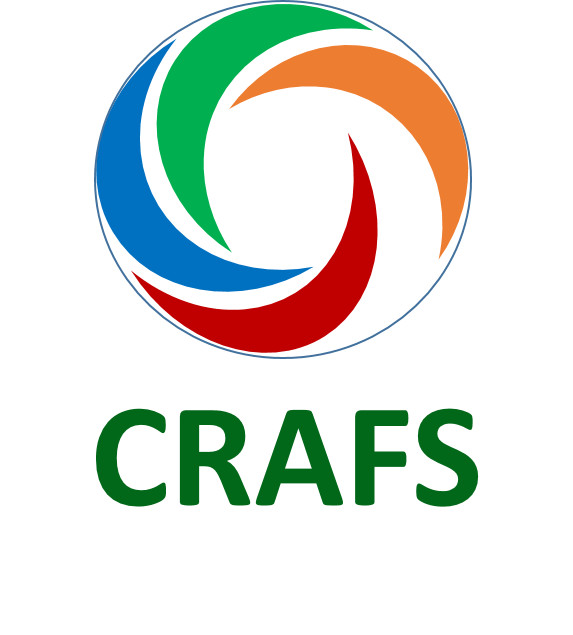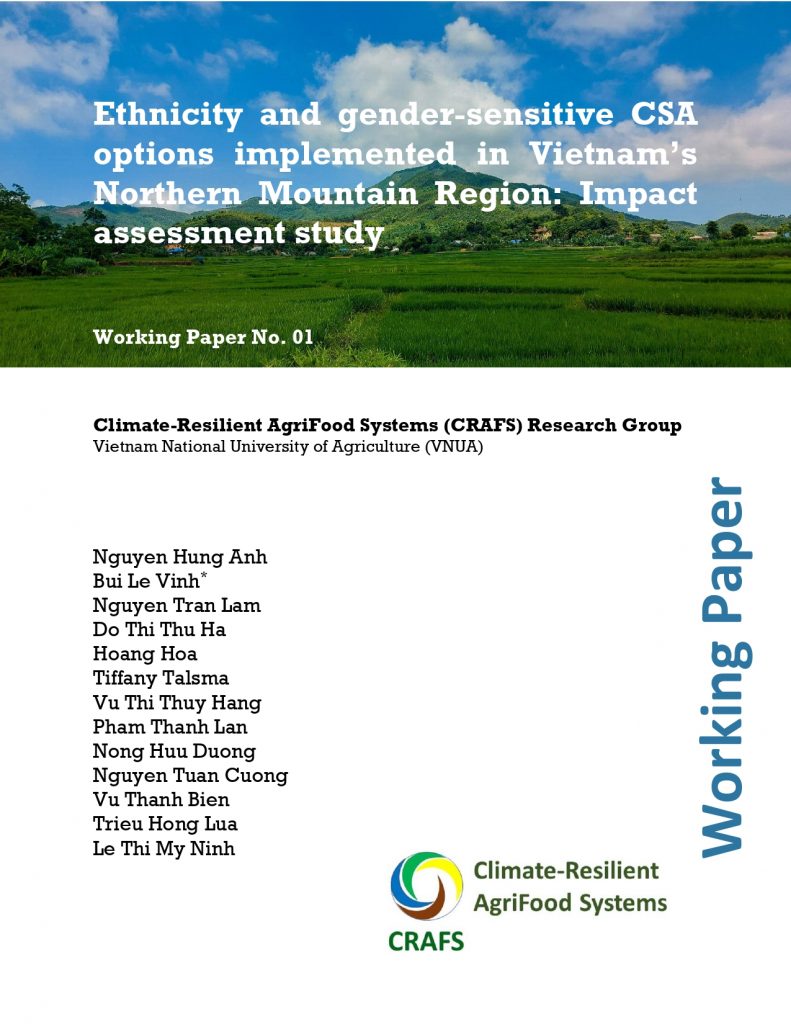Citation
Nguyen HA, Bui LV, Nguyen TL, Do TTH, Hoang H, Talsma T, Vu TTH, Pham TL, Nong HD, Nguyen TC, Vu TB, Trieu HL, Le TMN. 2022. Ethnicity and gender-sensitive CSA options implemented in Vietnam’s Northern Mountain Region: Impact assessment study. CRAFS Working Paper No. 01. Vietnam National University of Agriculture: Climate-Resilient AgriFood Systems (CRAFS) Research Group.
*Corresponding author: Dr. Bui Le Vinh. Faculty of Natural Resources and Environment. Vietnam National University of Agriculture. Founder and leader of the CRAFS research group. Email: bui_le_vinh@yahoo.com, blvinh@vnua.edu.vn.
Permanent link to cite or share this item: http://crafs.vnua.edu.vn/en/news/handle-1234/
Abstract/Description
Climate change has long been a major challenge to rural livelihoods in Vietnam, particularly in NMR. Enhance adaptive capacity and resilience to climate change is considered vital to rural households’ and communities’ sustainable development. Despite significant achievements of CCAFS FP2.1 project through synergies and engagement of Yen Bai governments (village, commune, district, and province), local farmers, local private sector, and researchers (CIAT1, NOMAFSI2, VNUA3) in developing a climate-resilient community in the Ma CSV, the project yet seem to be far left on a concern of social issues, i.e. rural migration, social disruption, conflicts, discrimination, gender inequalities, and ethnic disadvantages. This study, funded by the CCAFS P1596 project, aims to unveil and explicate previously unknown social inequalities (gender and ethnicity) in the horizontal application of the climate-smart agriculture technologies and practices (CSA T&Ps) within the CSV model in Ma village. In addition, the presence of social factors (age/gender/ethnicity/education/experience) in the adoption of CSA T&Ps was also tested by the binomial logistic regression. The study flexibly utilized mixed methodology (qualitative and quantitative approach) to best highlight and triangulate change outcomes and impacts of the CCAFS FP2.1 project work on the horizontal scaling of CSA options. According to the empirical findings, no existence of social inequalities by gender has been found but exhibited significant other social issues in terms of ethnic disadvantages referring to opportunities to participate in training (AP and CCF), having access to science and technology services (S&T), and agricultural production management (FR). Further, farmers’ willingness to adopt CSA T&Ps (CSA options) from the CSV project was influenced by several factors including gender (Gen), training of agricultural practices (TrAP), training of agricultural production management (TrAM), access to extension service (AcES), access to climate change service (AcCS), perception of extreme weather (PeEW), and perception of depleting water source (PeEW).
Keywords:
Climate-smart village, outcomes, climate change, adaptive capacities, resilience
CRAFS Key Author ORCID iDs
Hung Anh Nguyen: https://orcid.org/0000-0002-0568-2835
Le Vinh Bui: https://orcid.org/0000-0003-1336-317X
CRAFS Research Area
Climate-smart agriculture
Contributes to SDGs
SDG 13 – Climate action
Country
Vietnam

 Tiếng Việt
Tiếng Việt
